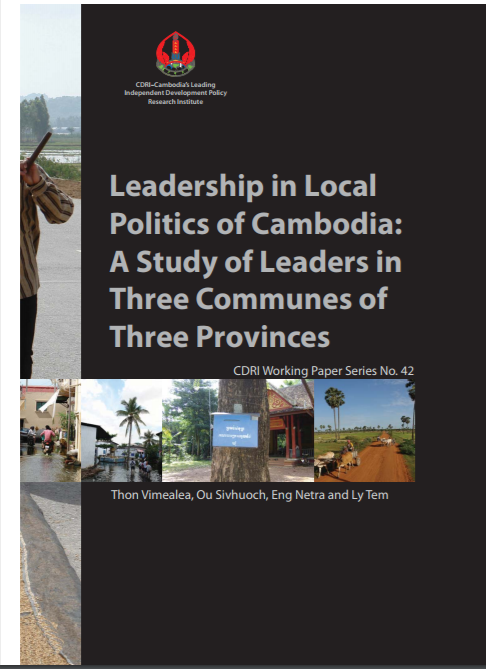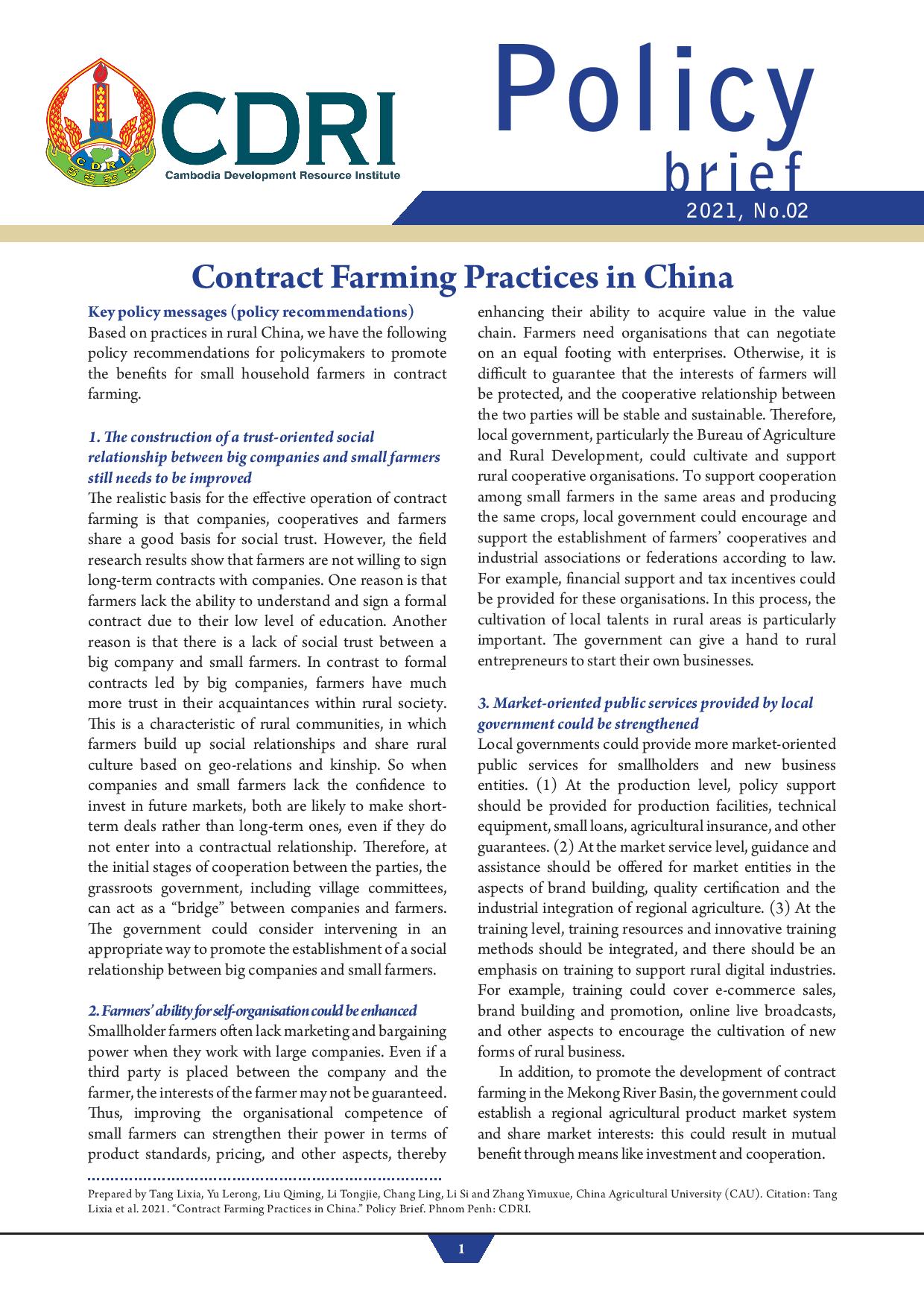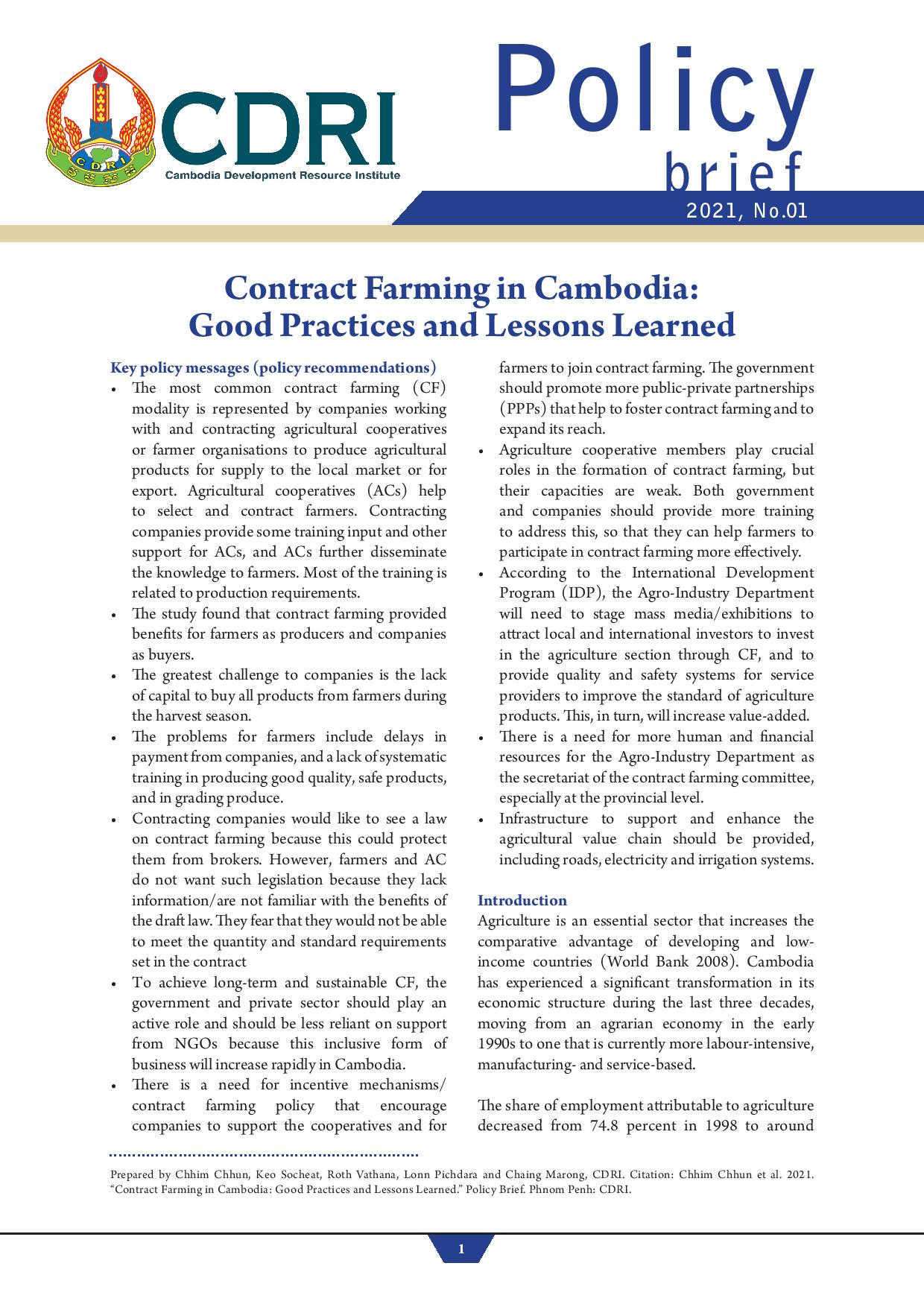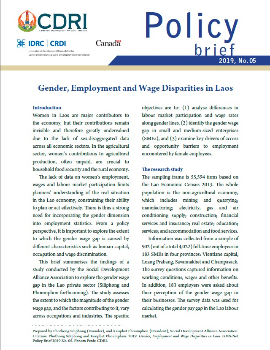
Leadership in Local Politics of Cambodia: A Study of Leaders in Three Communes of Three Provinces
Keyword: Local leadership, decentralisation and deconcentration, state-society relations, legitimacy and governance, gender and political participation
Abstract/Summary
Using the state-society gap as its assumption and point of
departure, the study seeks to identify different kinds of local leaders
(including women leaders) and their associated characteristics and elements of
legitimacy in order to see whether and how they can help bridge this gap, in
the midst of the decentralisation and deconcentration reform.
Findings reveal that, for voters, significant leaders are
village chiefs, commune councils, elders and achar and economic leaders.
Knowledge leaders and community-based organisations are virtually absent and
not relevant from their point of view. Village committees and commune councils
have an average education lower than needed to carry out their specifically
increased mandates and responsibilities; and the majority are aged 49 and
above. Women leaders on average have higher education than their male counterparts
and are younger, but they are relatively new to leadership roles and so face
many challenges, including support from family. Administrative leaders have to
be associated with a political party if they want to be legitimate because they
are dependent upon backing and financing from political parties to carry out
commune development, since the Commune/Sangkat Fund is meagre. Economic leaders
are usually more educated and have the wealth to contribute to commune
development, and so are becoming increasingly powerful and influential in local
and national politics. They have networks that link to national levels, which
give them the benefits of bypassing local authorities, of monopolies and of
running their businesses, including illegal activities, smoothly. Elders and
achar especially help bridge the gap between authorities and the people via
their important roles in mobilising labour and contributions for projects,
including religious activities, in helping solve minor domestic conflicts and
in commune planning with local authorities. They get along with virtually every
actor in their villages and communes. Knowledge leaders emerge only when their
possessions are among the resources being threatened, while development
assistance leaders usually only provide material assistance and function in a
very sporadic manner. They are usually not based in the communes.
It was found that, as a result of D&D reform, the gap
between state and society has been bridged, albeit very slowly, unevenly and
narrowly. To assist the reform and promote democracy, the study suggests
several policy implications:
- Functions and power to carry out their stated mandate and
the right to collect taxes should be fully devolved to commune councils.
Careful implementation of the organic law will help this.
- The Commune/Sangkat Fund should be reconsidered to help curb
the distortions party politics and party financing have created on commune
councils’ accountability and responsiveness.
- Better (coordinated and coherent), not necessarily more,
training is needed to help commune councils understand their roles and
accountability.
- An enabling working environment, including a better pay
system, should be created to attract more candidates and reduce petty
corruption among commune councillors.
- Natural resource management could be improved if central planning for it were linked to local planning, which is currently not the case.
- Gender promotion should also include adequate attention to promotion of women’s livelihoods and not just to counting and training women leaders.



